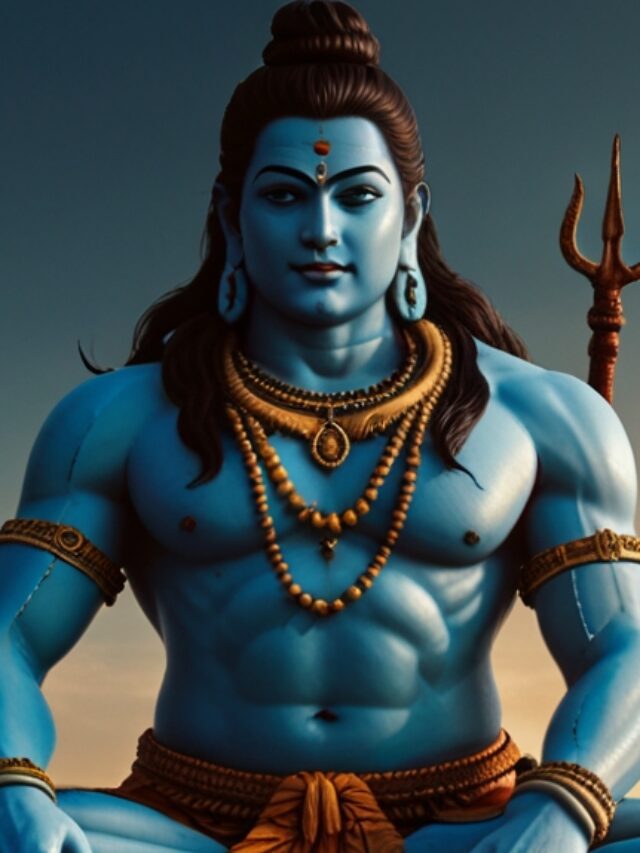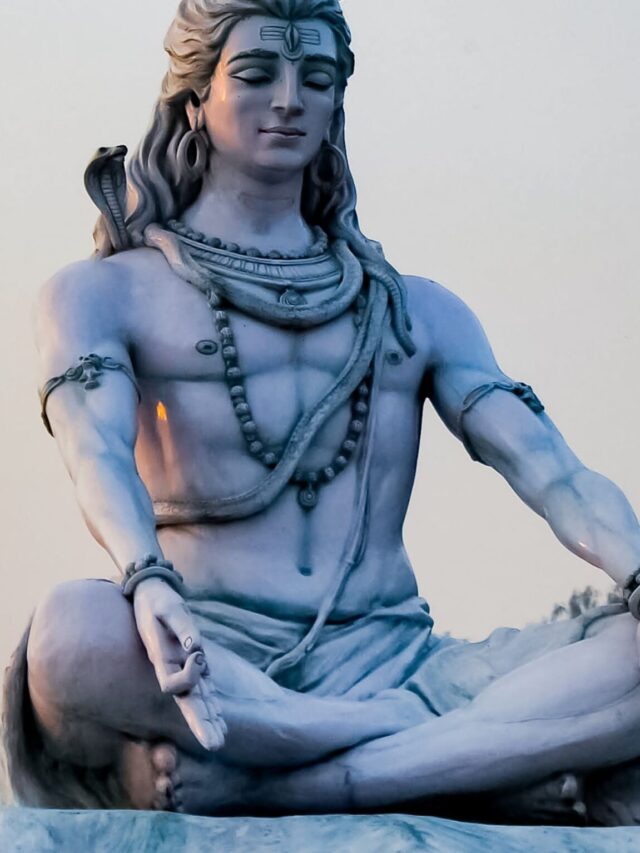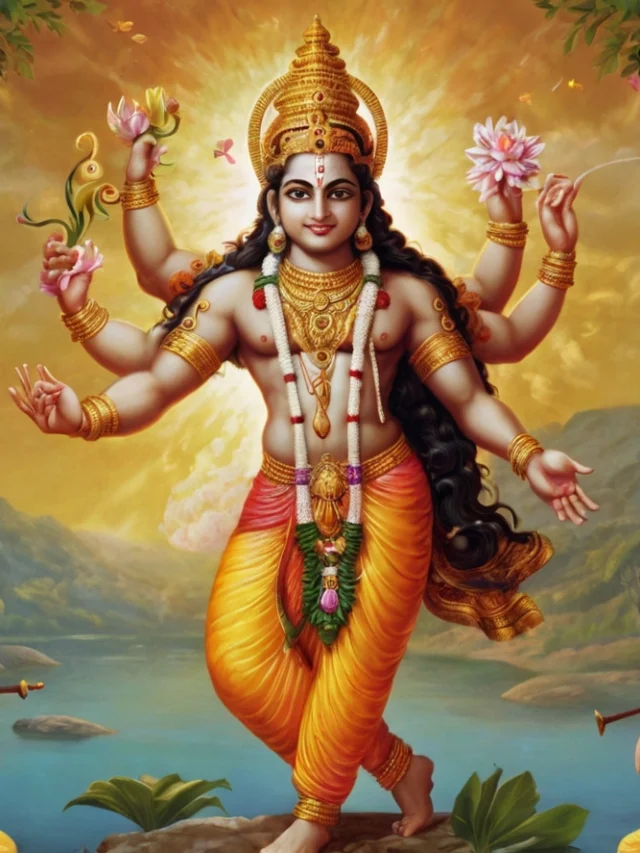Delve into the epic Mahabharata : From Bharata’s Legacy to Shantanu’s Destiny. Explore how King Bharata’s legacy shapes the Kuru dynasty. Witness King Shantanu’s fateful marriage to the celestial Ganga and the extraordinary vow that alters their lineage forever. This story unveils the choices that set the stage for the grand conflict of the Mahabharata.
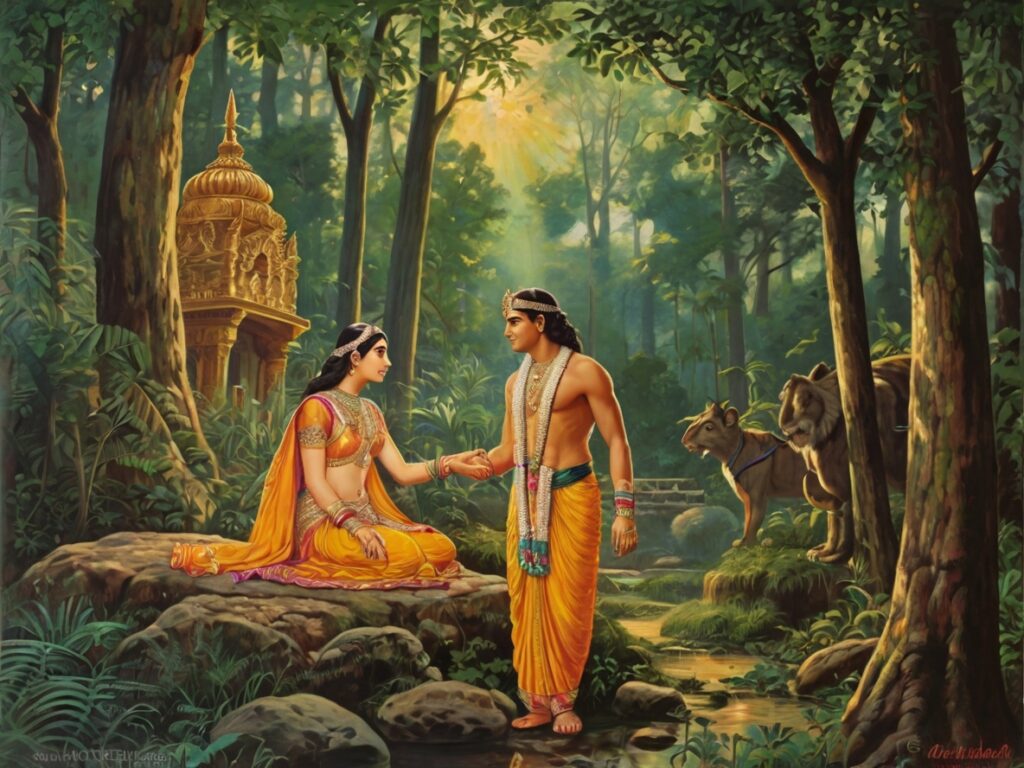
Lost Love and a Forgotten Ring: The Story of Dushyant and Shakuntala
The Mahabharata, while known for its grand battles and epic conflicts, also weaves in beautiful tales of love and loss. One such story is the poignant tale of Dushyant, a powerful king, and Shakuntala, a beautiful hermit girl.
Amidst Tranquil Groves: A Chance Encounter
King Dushyant, while on a hunting expedition, stumbles upon the peaceful ashram of sage Kanva. Here, he meets Shakuntala, the sage’s foster daughter. Surrounded by nature’s beauty, their attraction blossoms, and they fall deeply in love.
A Gandharva Union: Love Sealed by Consent
With Kanva away, Dushyant proposes to Shakuntala according to the Gandharva marriage rite, a union based on mutual consent. He bestows upon her a signet ring, a symbol of their love and promise. However, consumed by his kingly duties, Dushyant departs, leaving Shakuntala pregnant and heartbroken.
The Curse of Neglect: A Forgotten Promise
Time passes, and Shakuntala, filled with longing, prepares to travel to Dushyant’s court. But fate intervenes. Lost in her thoughts of her beloved, she fails to acknowledge the arrival of the fierce sage Durvasa. This unintentional disrespect invokes a terrible curse – Dushyant will forget her entirely.
A Palace Blind to Love’s Plea
Upon reaching the court, Shakuntala presents the signet ring, the token of their love. However, Dushyant, under the curse’s influence, fails to recognize her or their bond. Devastated and alone, Shakuntala is forced to leave the palace.
A Mother’s Strength: Raising a Legacy
Shakuntala finds refuge in a hermitage, where she gives birth to a son named Bharata. Despite the hardship, she raises him with love and strength. Years later, a twist of fate brings Shakuntala and the grown Bharata to a fishing competition held by Dushyant.
The Ring of Recognition: Rekindled Memories
During the competition, a fisherman retrieves a familiar ring from a fish he catches. It’s the signet ring Dushyant had gifted to Shakuntala. As he holds the ring, memories come flooding back, shattering the curse’s hold. Dushyant recognizes Shakuntala and his son, overwhelmed with remorse and regret.
A Family Reunited: Love’s Everlasting Bond
Dushyant finally accepts Shakuntala as his wife and Bharata as his heir. Their family is reunited, though marred by the pain of lost years. However, their story serves as a testament to the enduring power of love, even when faced with adversity and fate’s cruelty.
King Shantanu and Ganga: A Love Story Marred by Sacrifice
The Mahabharata, a grand epic of ancient India, weaves tales of love, duty, and sacrifice. One such story lies in the union of King Shantanu and Ganga, a celestial being personifying the sacred Ganges river. Their love story is intertwined with destiny and a profound act of selflessness that shapes the future of the Kuru dynasty.
Love at First Sight: A King and a River Goddess
King Shantanu, a descendant of the illustrious King Bharata, ruled the Kuru kingdom with wisdom and strength. During a hunting expedition, he chanced upon a breathtaking sight – Ganga, the embodiment of the celestial river, in all her ethereal beauty. Entranced, King Shantanu fell deeply in love and proposed marriage.
A Condition Bound by Duty: The Price of Love
Ganga, however, agreed on a condition that seemed impossible. She declared she would bear children for him, but would drown them immediately after birth. This stemmed from a celestial curse she carried. King Shantanu, consumed by his love, was forced to make a heart-wrenching decision. He agreed to her condition, prioritizing her presence in his life over the life of their offspring.
Cycles of Love and Loss: A King’s Silent Agony
Ganga gave birth to several sons, each time drowning them in the river while a heartbroken King Shantanu stood by, bound by his promise.
When they bore their first child, the girl put the child in the river. Shantanu felt disappointed, but was scared to question her, since he knew she would leave him otherwise. Whenever she bore a child, she threw the baby into the river & Shantanu remained silent.
When it was time for the eighth child to be thrown, Shantanu stopped her.He asked “Why are you throwing our children into the river? “. She replied “I am Mother Ganga. These children were Devas in their previous births who were cursed to be born in Earth. Since you have stopped me now, I will have to leave you and this child will not be drowned. In 16 years, I will get this child trained in all types of arts with the best of Gurus. The child shall be named Devabrata.” Saying this, Ganga along with the child disappeared.
After 16 years, Ganga came back to Shantanu along with Devabrata. She said to Devabrata “You should always be at your father’s service and protect Hastinapur.” Then Ganga left.
And thus Devabrata was brought to this earth.
The Revelation and the Vow: A Son’s Sacrifice
Moved by his unwavering love and devotion, Ganga revealed the truth behind her curse. The child was the son of a vengeful deity, reborn to destroy the Kuru lineage. Offering a solution, Ganga took the child and granted him immense strength and celestial knowledge. However, to break the curse, she demanded a heavy price. The child, named Devavrata, would have to take a vow of celibacy, ensuring he would never have children and the vengeful cycle would end.
Bhishma’s Unwavering Loyalty: A Boon for the Dynasty
Devavrata, the future Bhishma, placed the future of the Kuru lineage above his own desires. He readily agreed to the vow, displaying immense filial piety and sacrificing his personal happiness. Ganga returned Bhishma to King Shantanu, who raised him as his heir.
Love’s Lingering Shadow: A Future Shaped by Sacrifice
Though Bhishma became a legendary warrior and pillar of the Kuru dynasty, his vow would have a profound impact on the future. The kingdom still needed a legitimate heir. This desire for a rightful successor would eventually lead King Shantanu to marry Satyavati, setting the stage for the complex relationships and conflicts that would unfold in the Mahabharata.
A Legacy of Love and Sacrifice
King Shantanu and Ganga’s story serves as a stark reminder of the complexities of love and duty. Their union, marked by sacrifice and heartbreak, shapes the generations to come. It highlights the enduring power of love, the weight of promises, and the consequences of choices made in the face of destiny.
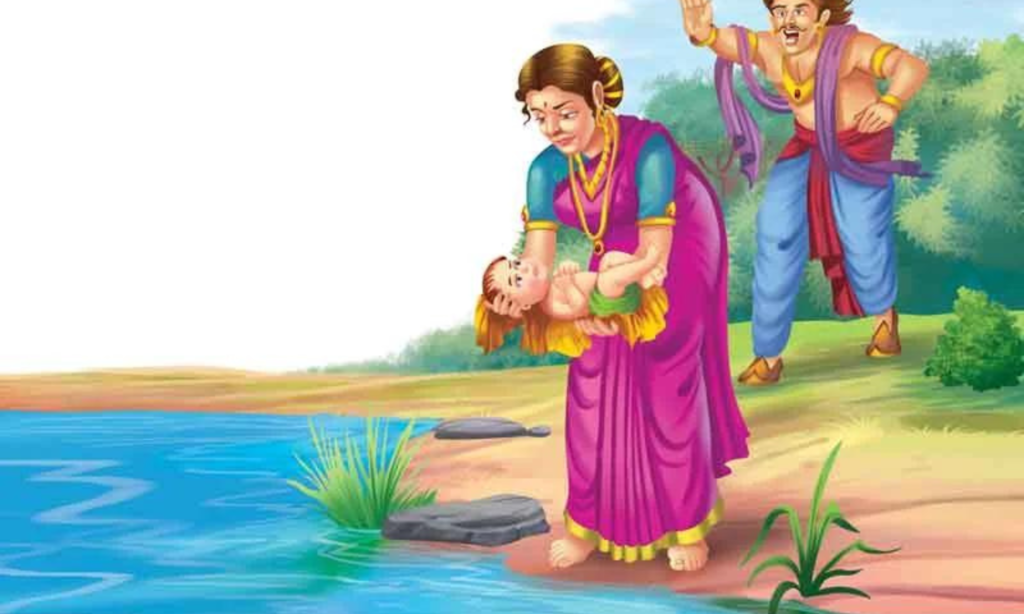
Why did Ganga Maa throw her children into the river in Mahabharta?
There are eight gods, known as Vasus (called “Aṣṭa-vasu”, ‘Eight Vasus’), who represents different aspects of nature.
These elements are:
- Prithvi (Dharā)
- Agni (Anala)
- Vāyu (Anila)
- Jal (Āpa)
- Surya (Āditya)
- Aakasha (Prabhāsa)
- Chandramas (Soma)
- Nakstrani(Dhruva)
The Vasus are attendant deities of Indra, and later Vishnu.
Once upon a time, these 8 Vasus were traveling through a forest on a vacation with their wives when they came across Vasishta Muni’s ashram. Outside the ashram, they saw “Nandini”, Vasishta’s divine cow.
The wife of Prabhāsa was so much absorbed by the beauty of the cow, that she requested and urged her husband to bring the cow for her.
Prabhasa tried convincing his wife that, they are devas. They do not have any use for cows or cow’s milk. Even though it is Nandini, whose milk gives everlasting life, Devas do not need it as they are already enjoying immortality on account of being Devas.
He continued, most importantly, Sage Vasishta is very fond of Nandini and it would be improper on their part to violate his integrity.
Despite many attempts by Prabhasa, his wife did not yield. She made imploring requests and finally succeeded in melting Prabhasa ‘s heart. He agreed and thus, the 8 Vasus took Nandini and her calf by force and disappeared before Vasishta returned to the Ashram.
When Vasishta returned, he found that his Nandini missing. He, through his divine vision, saw all that had happened. He became terribly angry and cursed the 8 Vasus to be born as Mortal Men in this world.
When the 8 Vasus came to know of this curse, they ran to Vasishta and fell at his feet asking for his forgiveness. Vasishta had cooled down by that time and he said that the curse cannot be taken back. However, the effect of the curse can be reduced.
He advised them to request goddess Ganga to be their mother on earth and ask her to relieve them of their birth as soon as they are born so that the vasus may return to the heavens without long years of suffering.
He said, “I can grant this reduction in effect to 7 of you who supported Prabhasa in his act of stealing. Since Prabhasa was the one who actually stole the cow, the curse will remain in full effect for him and he will have to live his full lifetime on earth like a man. However, he will live a great life and be regarded as one of the best souls to have ever walked the earth”. Saying this, Vasishta went back into meditation.
Relieved to hear this, the Vasus approached goddess Ganga and requested her to be their mother on earth and throw them into the river as soon as they are born. Ganga agreed and came to earth and became Shantanu’s wife to carry out this task.
This is why Ganga sacrificed 7 of her sons into the river and left the last one, who later came to be known as Bhishma.

